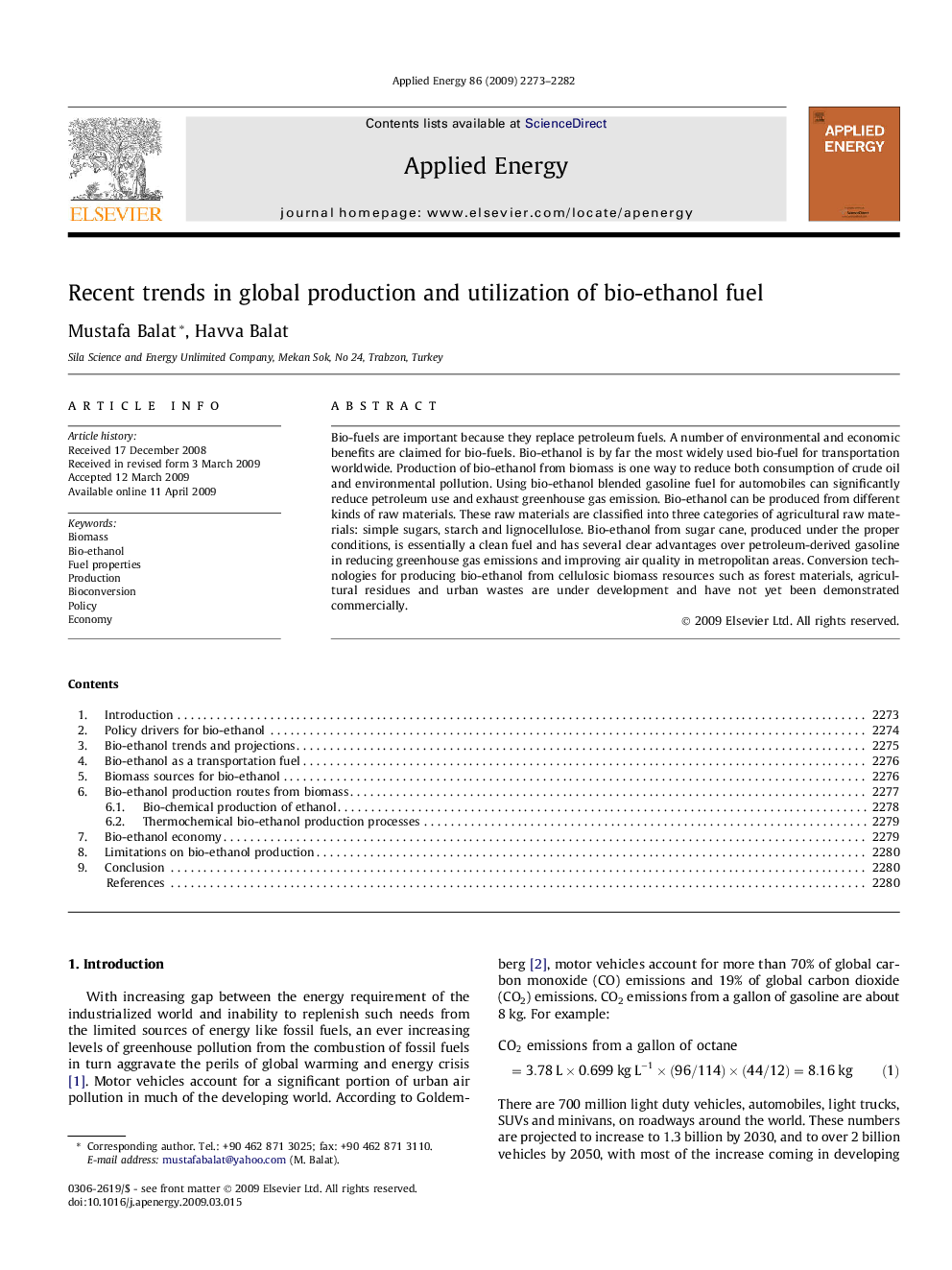| Article ID | Journal | Published Year | Pages | File Type |
|---|---|---|---|---|
| 245076 | Applied Energy | 2009 | 10 Pages |
Bio-fuels are important because they replace petroleum fuels. A number of environmental and economic benefits are claimed for bio-fuels. Bio-ethanol is by far the most widely used bio-fuel for transportation worldwide. Production of bio-ethanol from biomass is one way to reduce both consumption of crude oil and environmental pollution. Using bio-ethanol blended gasoline fuel for automobiles can significantly reduce petroleum use and exhaust greenhouse gas emission. Bio-ethanol can be produced from different kinds of raw materials. These raw materials are classified into three categories of agricultural raw materials: simple sugars, starch and lignocellulose. Bio-ethanol from sugar cane, produced under the proper conditions, is essentially a clean fuel and has several clear advantages over petroleum-derived gasoline in reducing greenhouse gas emissions and improving air quality in metropolitan areas. Conversion technologies for producing bio-ethanol from cellulosic biomass resources such as forest materials, agricultural residues and urban wastes are under development and have not yet been demonstrated commercially.
